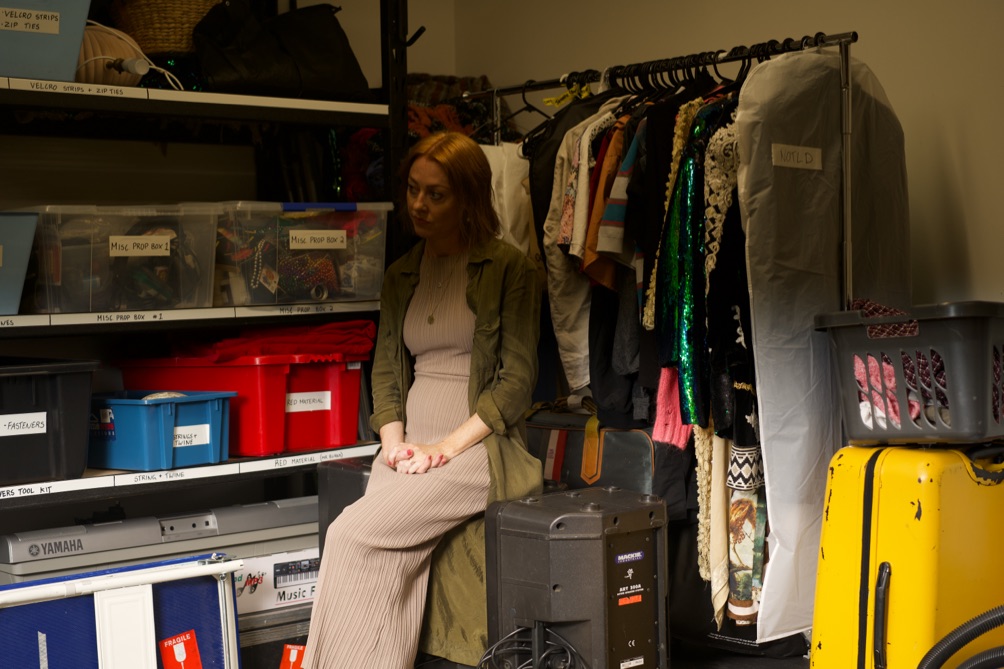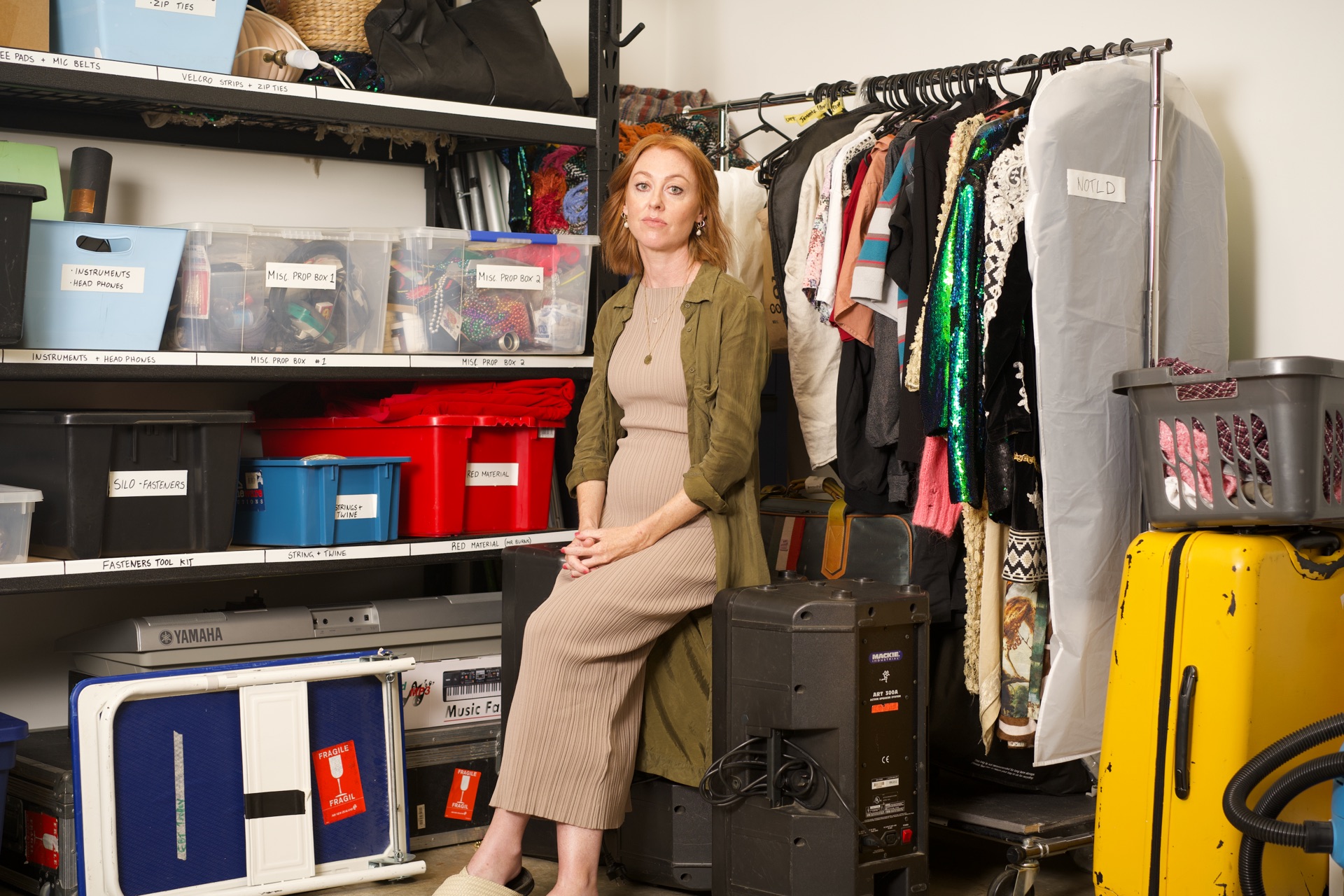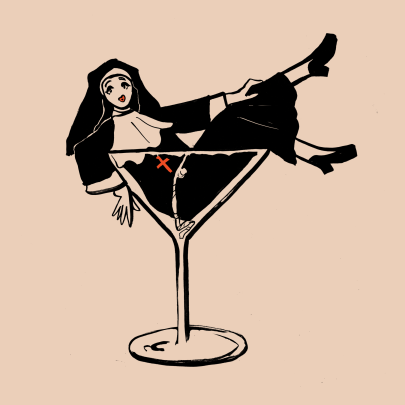May 25, 2023 Theatre
Critic and dramaturg Kate Prior talks to Sophie Roberts, the artistic director of Tāmaki Makaurau-based theatre company Silo Theatre, about its decision not to stage any shows in 2023 in order to develop three new New Zealand works. What does that say about the industry, and what are the company’s biggest challenges? Oh, and why doesn’t Aotearoa have an actual arts policy yet?
KATE PRIOR There was a very clear element in your artistic statement in which you announced that 2023 was “cancelled”, and also in the billboards that Silo Theatre ran, that I thought was really interesting. It was clearly about drawing attention to a crisis point — it felt purposeful. What was your thinking behind that?
SOPHIE ROBERTS It’s a decision that is equally driven by environmental realities as it is an artistic desire for the company. It has just been so difficult. When we were making decisions last year, we were having to gaze into a crystal ball, not knowing what this year would look like from a Covid point of view. And then looking at the funding that we have available — which is receding, like everybody else’s is — so not having the level of investment to do what we want to do. That all meant reducing the amount of work we can produce, because there’s also the rising costs of all the supply chain issues. I mean, the price of a set has doubled. There’s the fact we now need much longer timelines to accommodate sickness, which is not something we’ve ever had to worry about before, because we all just came to work sick. [laughs]
We’ve also lost so much of our workforce, particularly technical crew, as well as artists. That huge attrition of talent and knowledge has left a real gap, and there isn’t that infrastructure to support the next generation coming through. People are getting chewed up and spat out, or just burning out.
It’s all just made us go, ‘oh God’, you know? We’ve just come off a three-year cycle of unproducing work, and we don’t want to be in that for another year. How can we look to reset and get ourselves in a position to resuscitate the company?
KATE You also talk in your cancellation statement about getting into a pattern of being reactive and engaging in short-term thinking. At this crisis point, are you thinking more about the long-term plan?
SOPHIE That’s something I’ve noticed in my own thinking, that one of the impacts of the last few years is because you’re in survival mode all the time, you lose the skill of being able to look a year ahead, five years ahead, 10 years ahead, for the company. That muscle has gotten a bit weak. For what we do, you need to have that long-term strategic vision that is going to carry the company, and your people, but lurching from crisis to crisis isn’t enabling us to work that way.
KATE Artistically speaking, what fuelled the cancellation decision?
SOPHIE Because of the pandemic, we haven’t been in the cycle that we want to be in, where we always have something in development. We’re a really small team — we can only really have one thing in development over an 18-month, two-year period.
KATE And that’s not enough?
SOPHIE No, it’s not. If you want to be producing a minimum of 50% local work, like we do, it’s really hard. We weren’t able to do anything for two years, so when we did get back on stage, we could really only deliver on-stage productions, and we fell out of that pipeline of work. So from an artistic point of view, we want to reset things and actually have stuff in that pipeline, as well as making and presenting more of our own stories. But that work is time- and resource-hungry, so it was a choice to turn back towards the art-making — of putting artists in the centre. They’re a group of people who excite us a lot and who we want to support, so it felt like the right thing to do.
KATE There have been years that Silo hasn’t put on as much new writing from Aotearoa as you’d like.
SOPHIE Yeah, every year.
KATE Because of box-office decisions?
SOPHIE Well, it’s sort of capacity, too. We have to present a season of work, and there’s only four of us who work here. For us, it’s about resetting things so we can go back to the rule of three that we had for ourselves where, of New Zealand works, there’s one thing in development, one thing hitting the stage that year and one new work that’s on tour. We kind of got there. After years of pursuing that goal, it was just starting to feel good and then… Covid.
KATE Because, really, I think Silo is the only space that can platform new work from here that’s pushing boundaries. And offer it a budget.
SOPHIE Are we?
KATE Other places — places like Auckland Theatre Company — have other imperatives they have to acknowledge.
SOPHIE I mean, we occupy our little corner of things. We are a bit of a challenger brand in terms of how we sit in the sector. We want to be commissioning and partnering with artists who are wanting to take a risk with their work.
KATE Working with artists, do you see an impact of this perma-crisis on their hearts and minds — on their artistic drives?
SOPHIE Yeah, massively. This group of artists — every artist that I know, and I feel like me as an artist as well — a lot of it is about being out of practice. We feel rusty. There’s quite a big loss of confidence as well. There are benefits that come with it, in terms of being able to step back and realise that a lot of us were operating at a really unhealthy pace. I don’t want to continue to kill myself and work the way I was working before. A lot of people have just left, or have just barely survived the last few years, and have had to change their living situation if they want to stay in the sector.
KATE I remember Rosabel [Tan] did a great study on the opportunities of where we’re at and how we could change the way we work. Are we actually going to make changes? What would be your hope for where we go?
SOPHIE I remember back in 2020, there was a moment where it felt like everything was on fire, but there was a bit of excitement around — Well, if it all burns to the ground, then we can rebuild an anti-capitalist new way together. [laughs] But I feel like that mood has changed. Last year it was all about people wanting to just get back to business as usual.
KATE Many of those artists have gone now. People have left.
SOPHIE People have left. People are being left behind, or can’t see a way forward. Our sector was literally the latest to get back up and running. I think we heard a lot from hospitality and tourism, but the performing arts was quite left out of public conversation about the severity of impacts.
KATE Why do you think that is?
SOPHIE Well, because no one cares about the arts! [laughs] I don’t know. It just felt like a moment where we should have been leading these conversations, and we weren’t in the frame at all.
It’s difficult as well, when you’re operating in a climate where the mayor wants to completely gut all our funding — what is it, $41m or something, that he wants to take out of the budget next year?
KATE Will those cuts have an effect on Silo’s operations?
SOPHIE Yep. We receive council funding. And anything that affects anyone affects all of us, in terms of ecosystems. We all need each other.

KATE What single message would you want to convey to Minister for Arts, Culture and Social Heritage Carmel Sepuloni?
SOPHIE I think there’s an extraordinary lack of vision from the minister and from our government. That’s not new. But it continues to be disappointing and severely detrimental. I’d love to see some real clarity from our minister on what the road map out of this is. Why don’t we have an arts policy? That’s insane. I would love to see the government help us get back to that more long-term strategic thinking, rather than short-term survival mode.
KATE That seems to be what’s most necessary, isn’t it? We see these lumps of funding that get released because of a shortfall somewhere else. Like, Oh, great, another lolly scramble!
SOPHIE Lolly scramble is exactly it, eh. It’s not connected to strategy. There hasn’t been an adequate level of consultation with the sector, so those responses are ad hoc — they feel reactive, and aren’t addressing systemic issues. Or really valuing what we do, through a policy, and reflecting that the value that artists, and people who contribute to making art, add to the country is enormous.
As artists, we’re so quick to go, “Oh no, give the money to a worthy cause”, but, actually, we’re intrinsically linked to conversations around wellness and the way our society should be functioning.
KATE Do you think it works the other way around, too? Like, when things aren’t valued at that level, it feeds back into the art-making. I don’t think we’ve always done a great job using the nimbleness and urgency of theatre to speak to the moment that’s happening — because we can do that in theatre as opposed to screen, which has much longer lead times.
SOPHIE Yeah, totally. When theatre is operating at its best, it has a very strong civic function and an important democratic function, too. Sometimes we can forget that. And we devalue ourselves when we forget it.
KATE What is your role in terms of connecting with audiences? Audiences, you say in your artistic statement, are just not turning up. How do you attract them again?
SOPHIE That is a question we talk about all day long. It’s always the question in terms of, “What do we do to remove barriers?” Because there are a lot of barriers to theatre. Some are around pricing — that’s not as accessible as it could be, again, if we were better supported by the government, for example. So there are barriers that have always been there, but then also new barriers. Like people working from home more greatly reduces your water-cooler chat, so it’s much harder for word-of-mouth to do the job it needs to do. We’re noticing the impacts of the city being a lot quieter. We even noticed this weird thing last year where, suddenly, shows early in the week were suddenly the most popular — which is a complete swing from what it was pre-pandemic. People’s social behaviour has changed. We can observe these patterns and respond accordingly.
KATE Do you think Tāmaki, and by extension New Zealand, values arts, culture and creativity?
SOPHIE Yes, I do. Do I think we’re supported at the level we need to, by the powers that be? No. But in terms of, do I sit in an auditorium with Aucklanders and see the work impact them, and have amazing conversations with people afterwards? Yes. People are engaged and hungry. We aren’t reaching the amount of people that we should, but for the people who value what we do, it does have an enormous and meaningful impact.
KATE Are we at a point now where culture is in crisis?
SOPHIE Yes.
KATE What are the main ways you see that?
SOPHIE In terms of achieving what we want to achieve at Silo, the crisis is in resourcing, attrition of talent and a really volatile operating environment. Those are the biggest barriers right now.
KATE And how do we get artists to come back?
SOPHIE We have to have jobs for them. [laughs] And we have to pay them properly. I mean, the cost of living in this city right now, and what most artists make in a year — that does not work. They need to feel like there’s something to come back to that is going to nourish them and propel them forward creatively, because after a period of not a lot happening, things can start to feel a bit stagnant.
KATE Do you have hope that we can make meaningful change, artistically and industrially?
SOPHIE I do. I think the moment that we’re in is full of opportunity. Like, I don’t think it’s all doom and gloom, even though things are hard. When I look internally at what we’re up to this year, I’m really excited. I feel very revived by it for the first time in a few years. We haven’t completely missed the moment to change the way we do things, so I am hopeful that there are opportunities to rebuild things better. But I think it’s going to take us being supported to do that.
KATE When you made the announcement about cancelling the majority of 2023, what sort of feedback did you get from sector peers? I’m thinking of [chief executive of Creative New Zealand] Stephen Wainwright, and the fact that he acknowledged the cancellation on the Creative New Zealand blog at the end of 2022.
SOPHIE All the feedback we’ve had from artists or sector peers was very much like, “Yep, get it, makes sense, would like to do it myself.” It’s a bit harder to understand from an external or an audience perspective, because it looks like we’re not doing anything. Whereas in reality, it’s one of our busiest years in a long, long time. It’s actually flat out, because we’ve never undertaken this volume of development, ever.
KATE I feel like for those who don’t engage much, if they see a season cancelled, it might turn their head. Make them go, “It must have gotten bad.”
SOPHIE We wanted to make the point that we’re stopping in a really purposeful way. Well, not stopping — we’re turning our attention in a slightly different direction. People really have no idea what goes into making something, eh. The time, the energy. It’s a huge undertaking to make any piece of new work.
This interview has been edited for length and clarity.
–
This story was published in Metro N°438 as part of our quite bummery Cultural Collapse special.
Available here.






